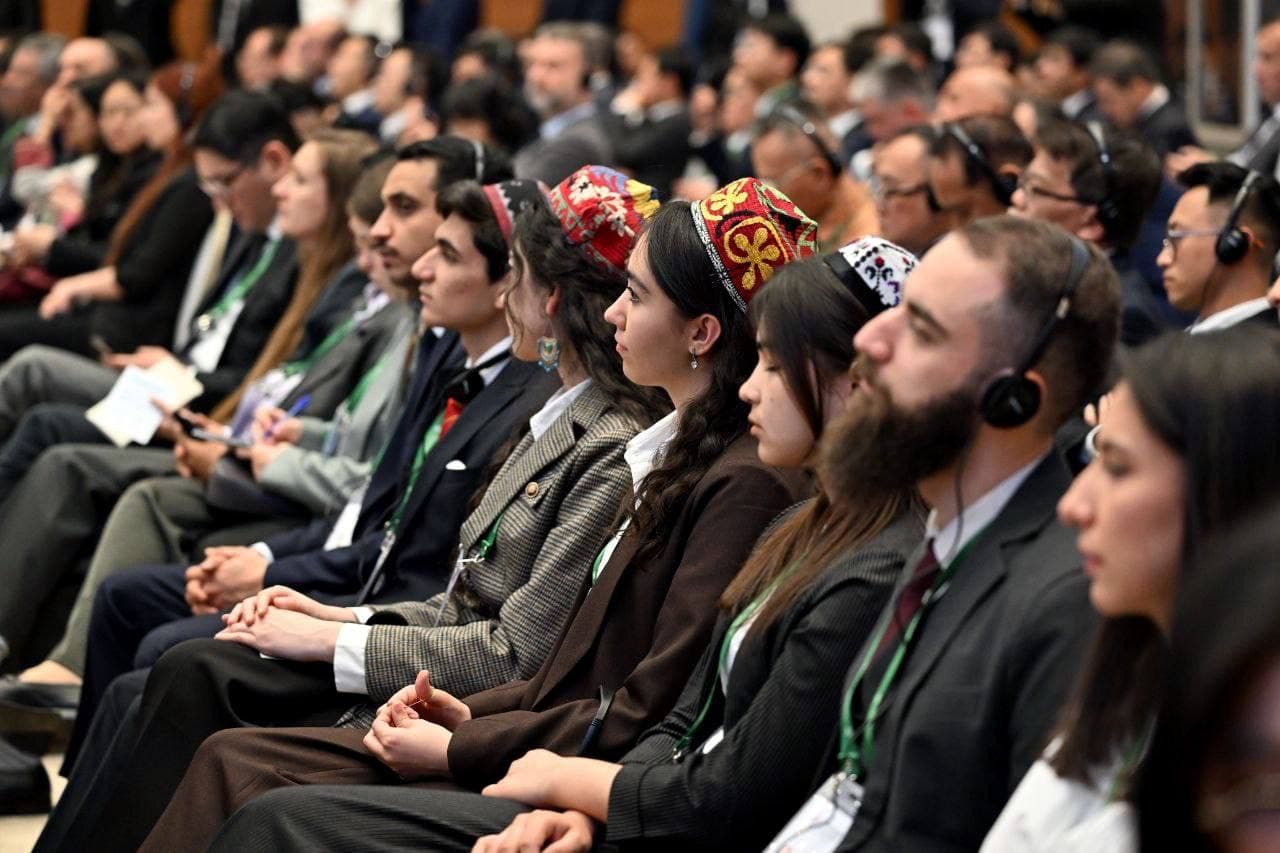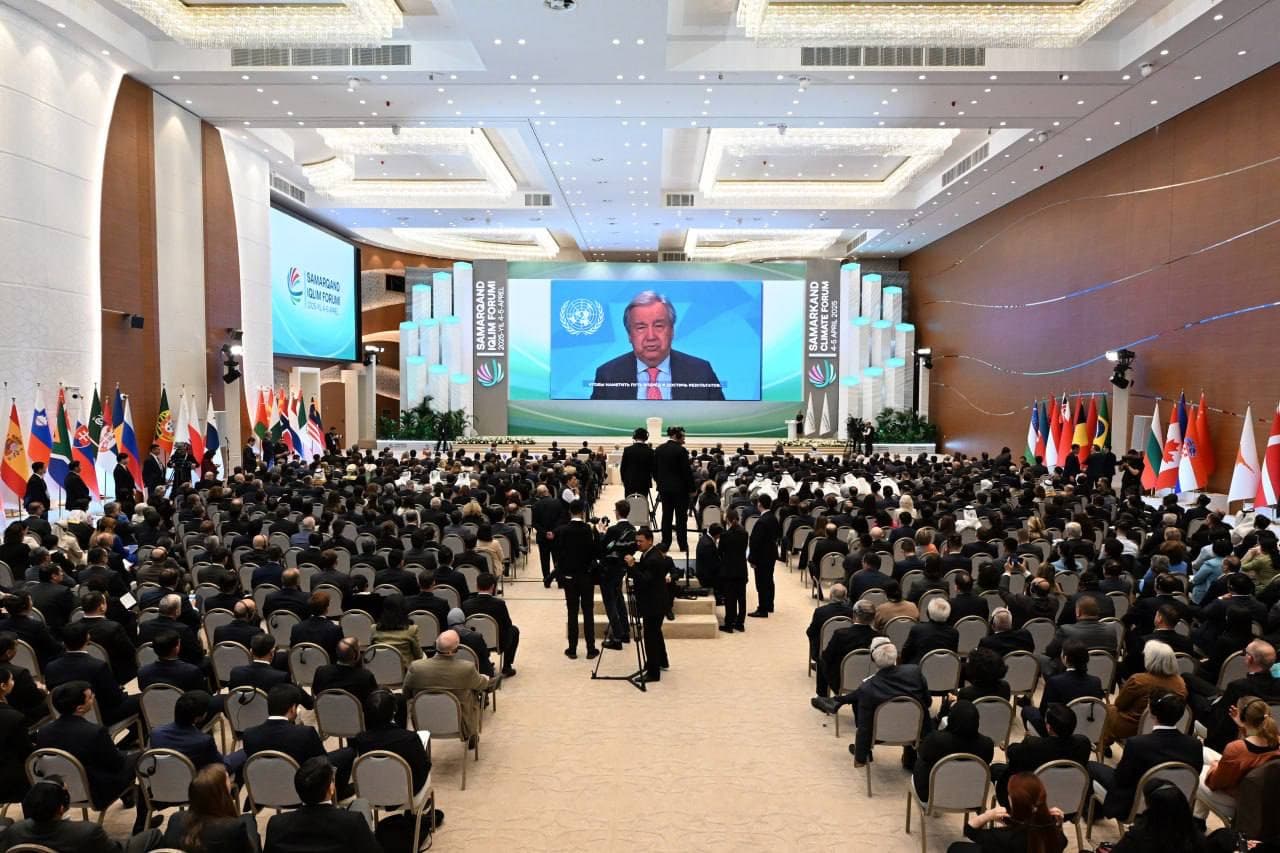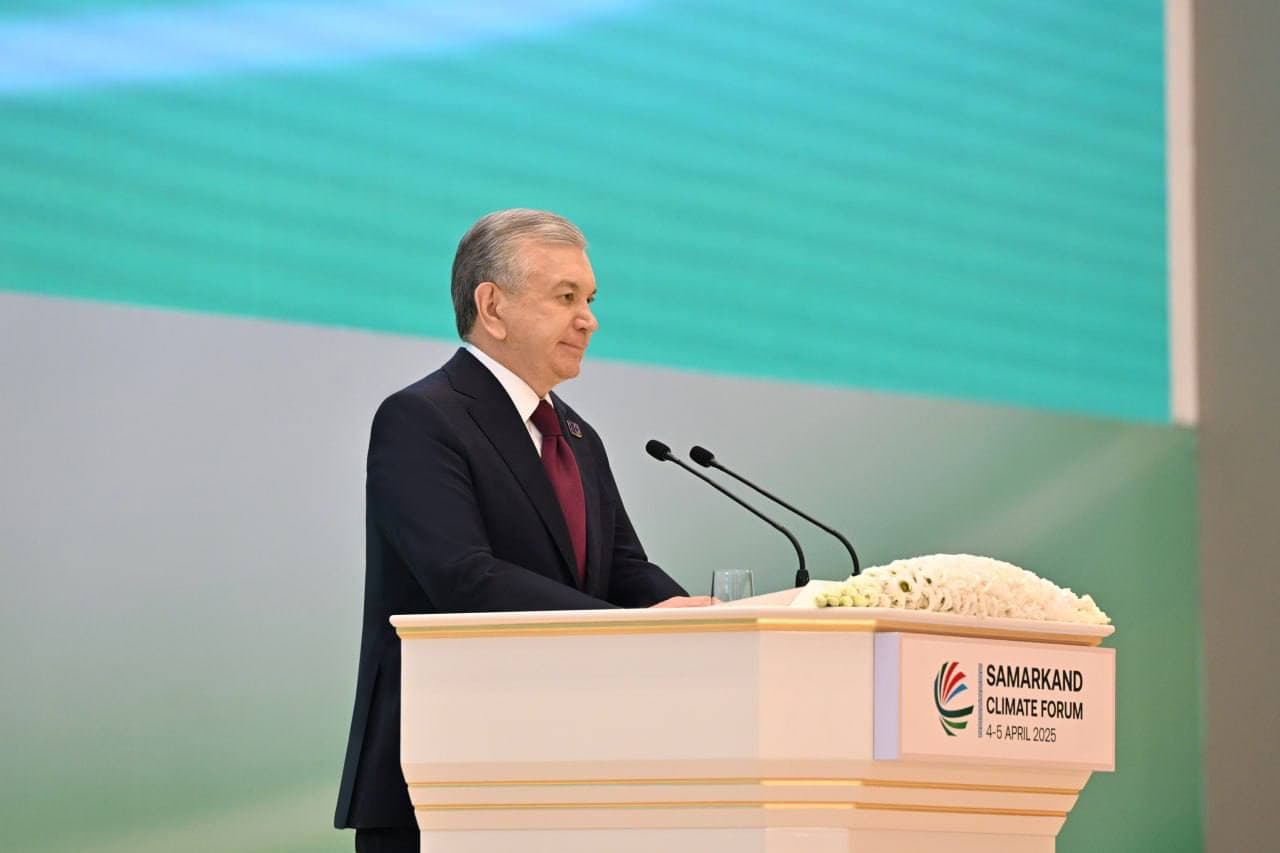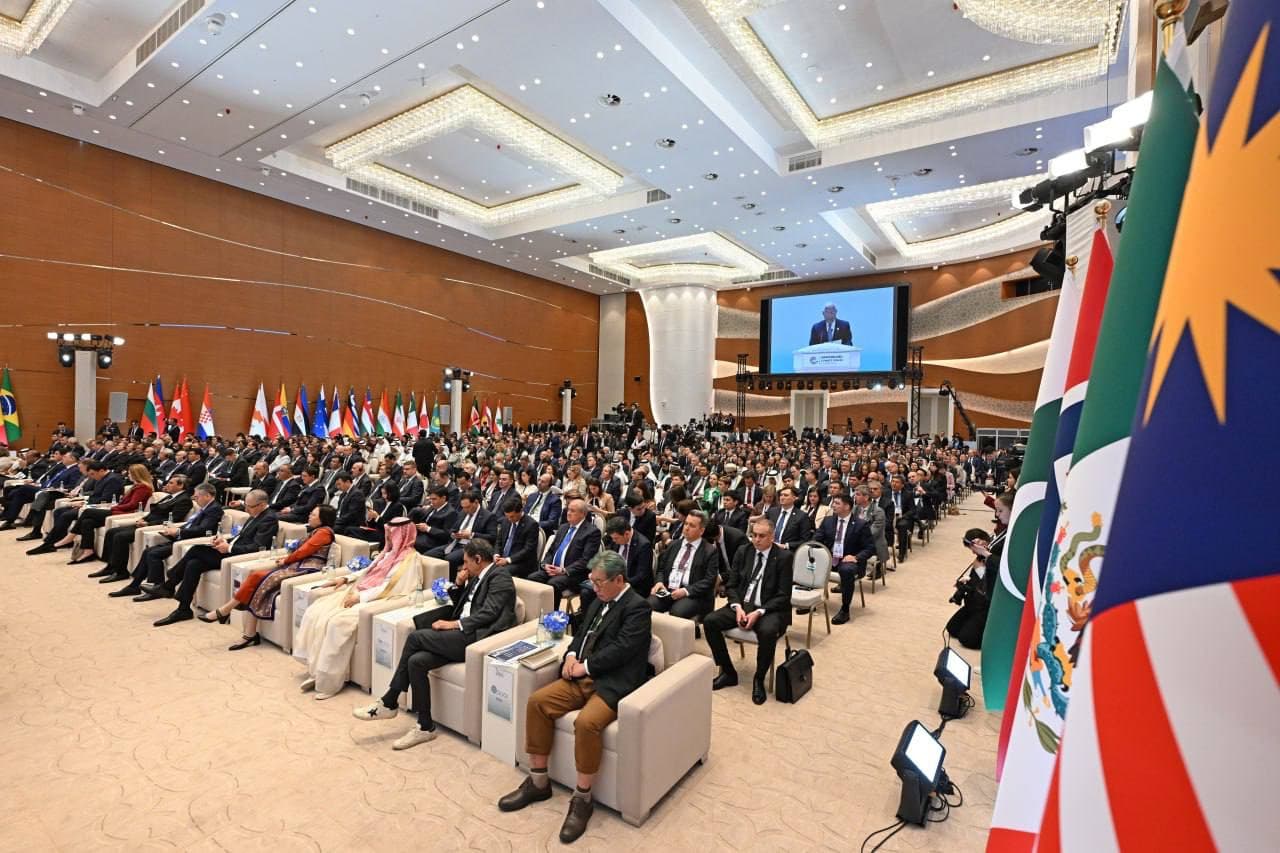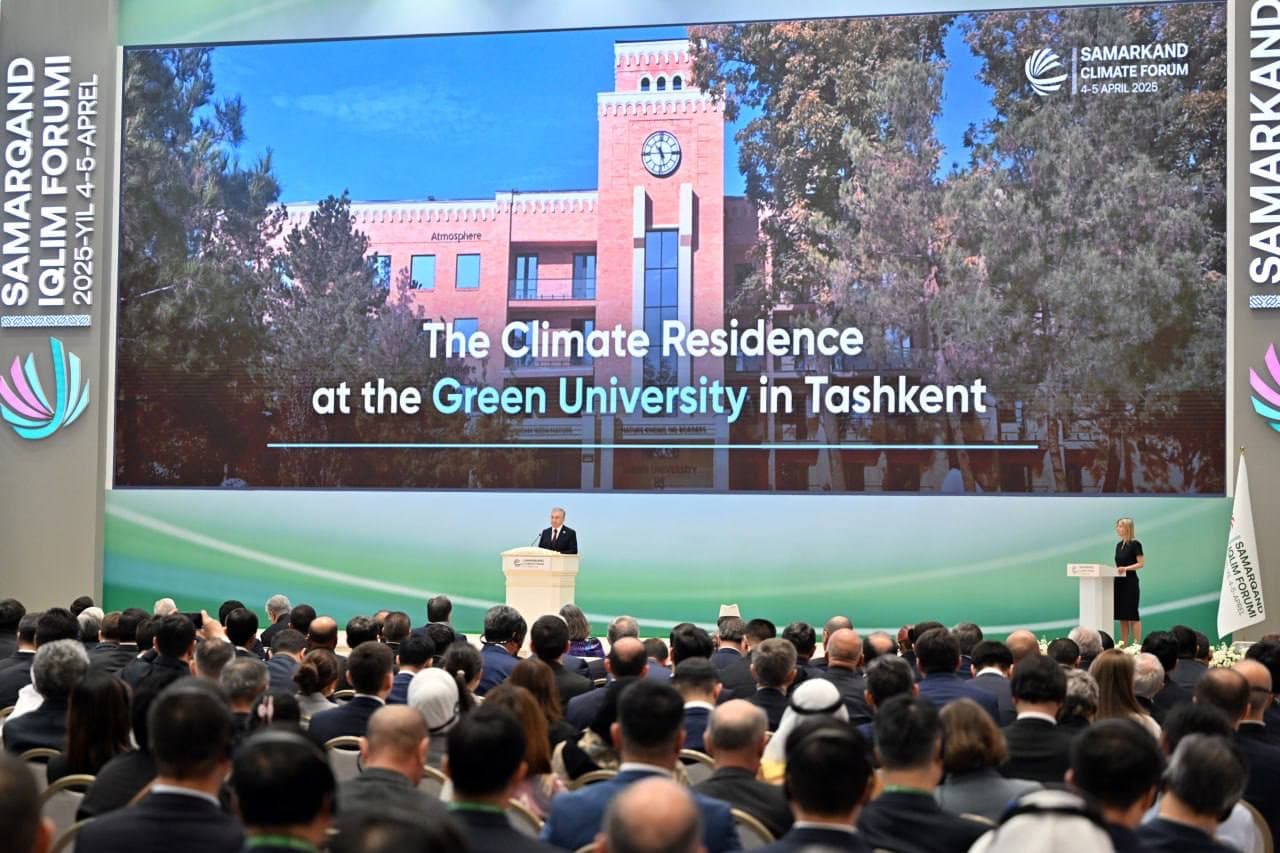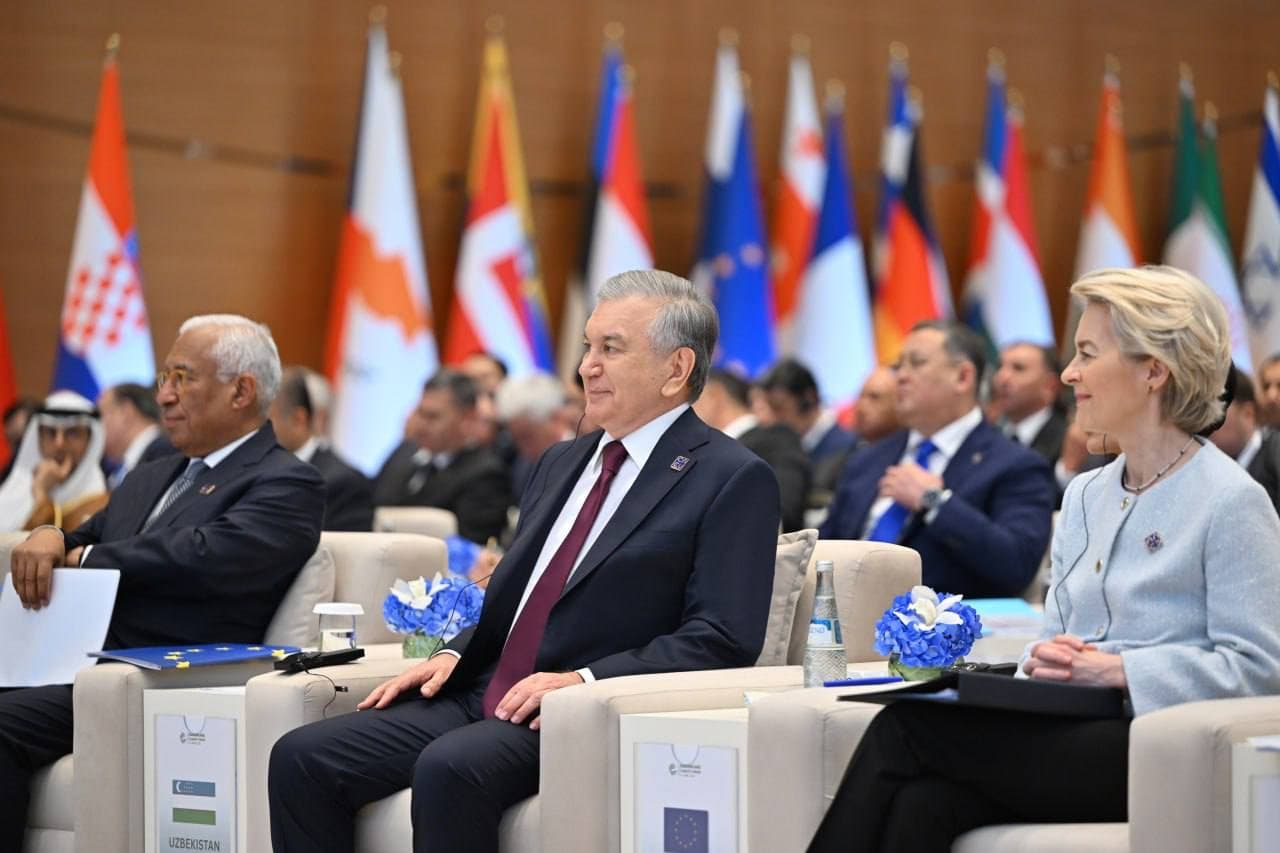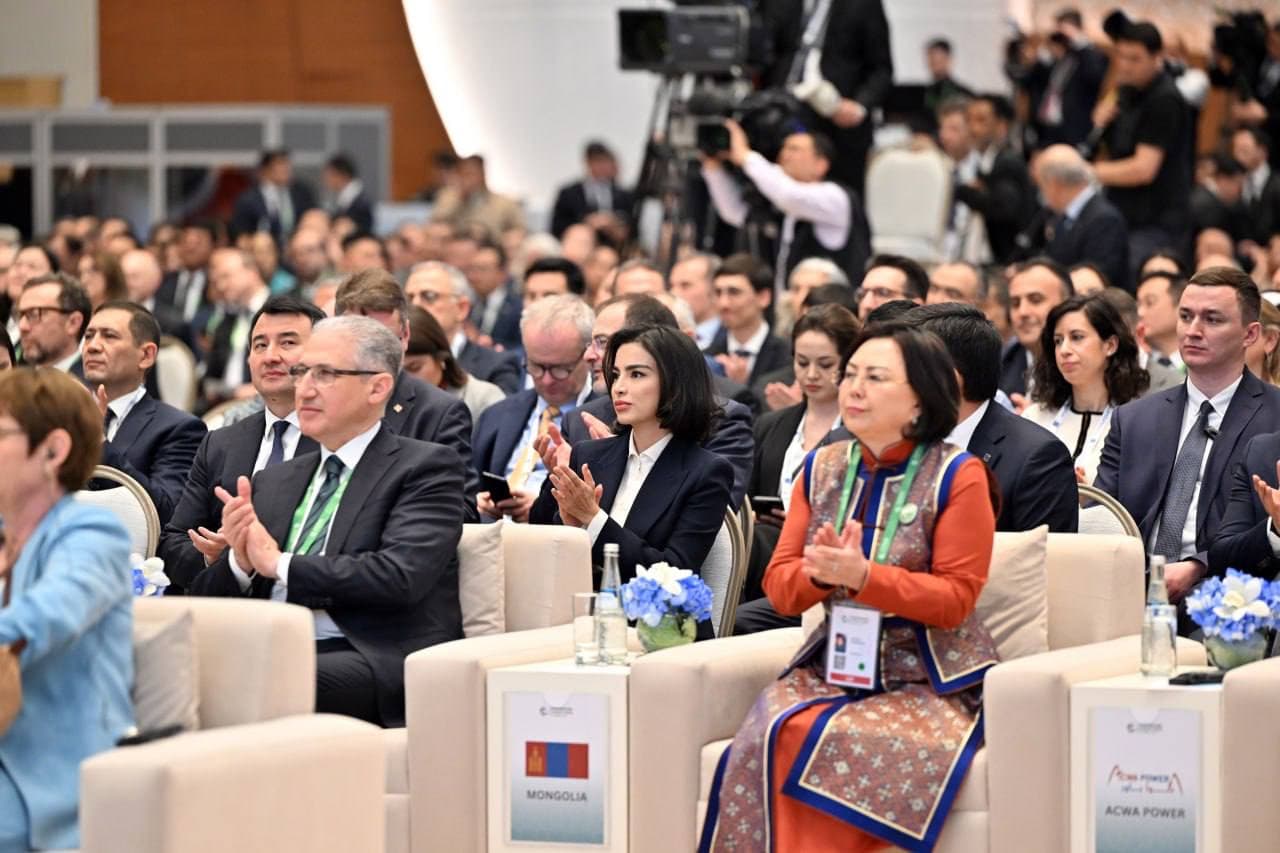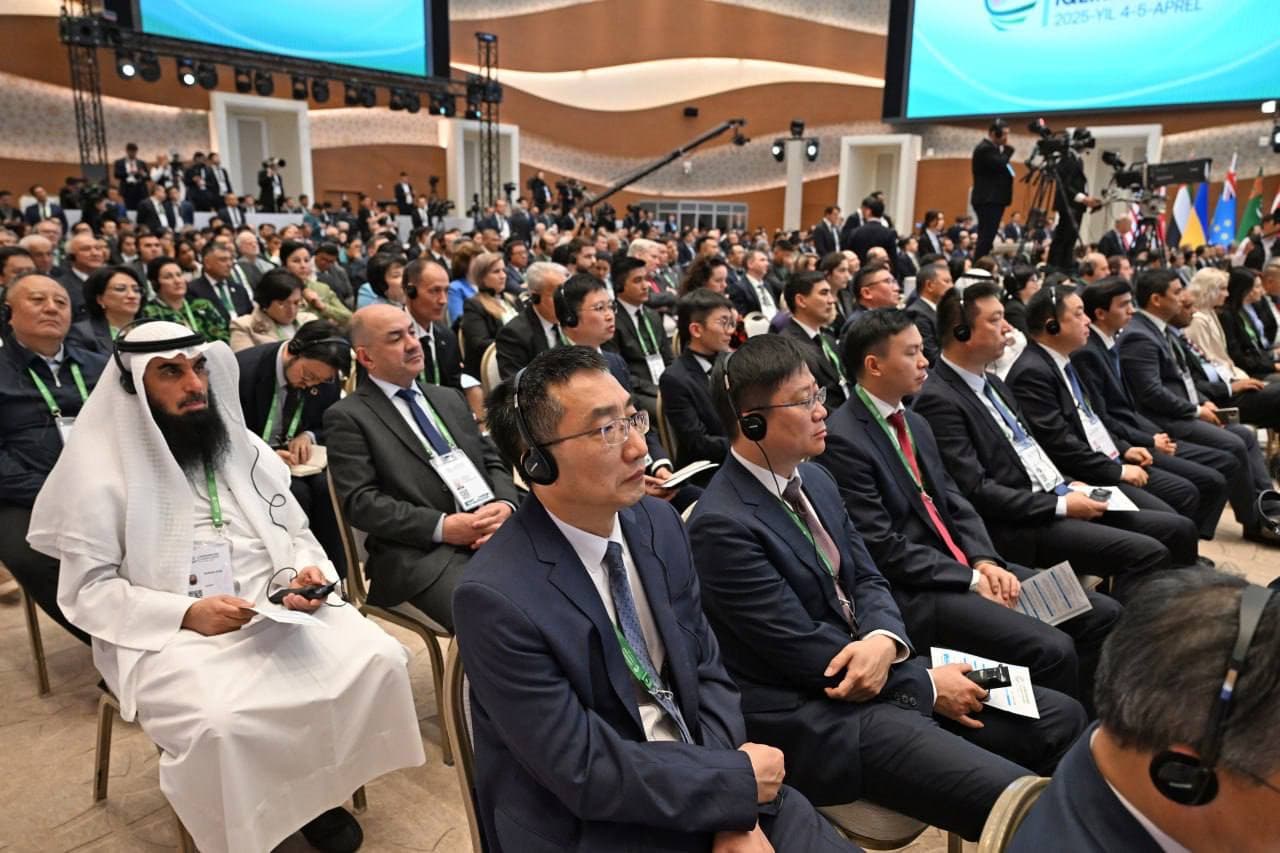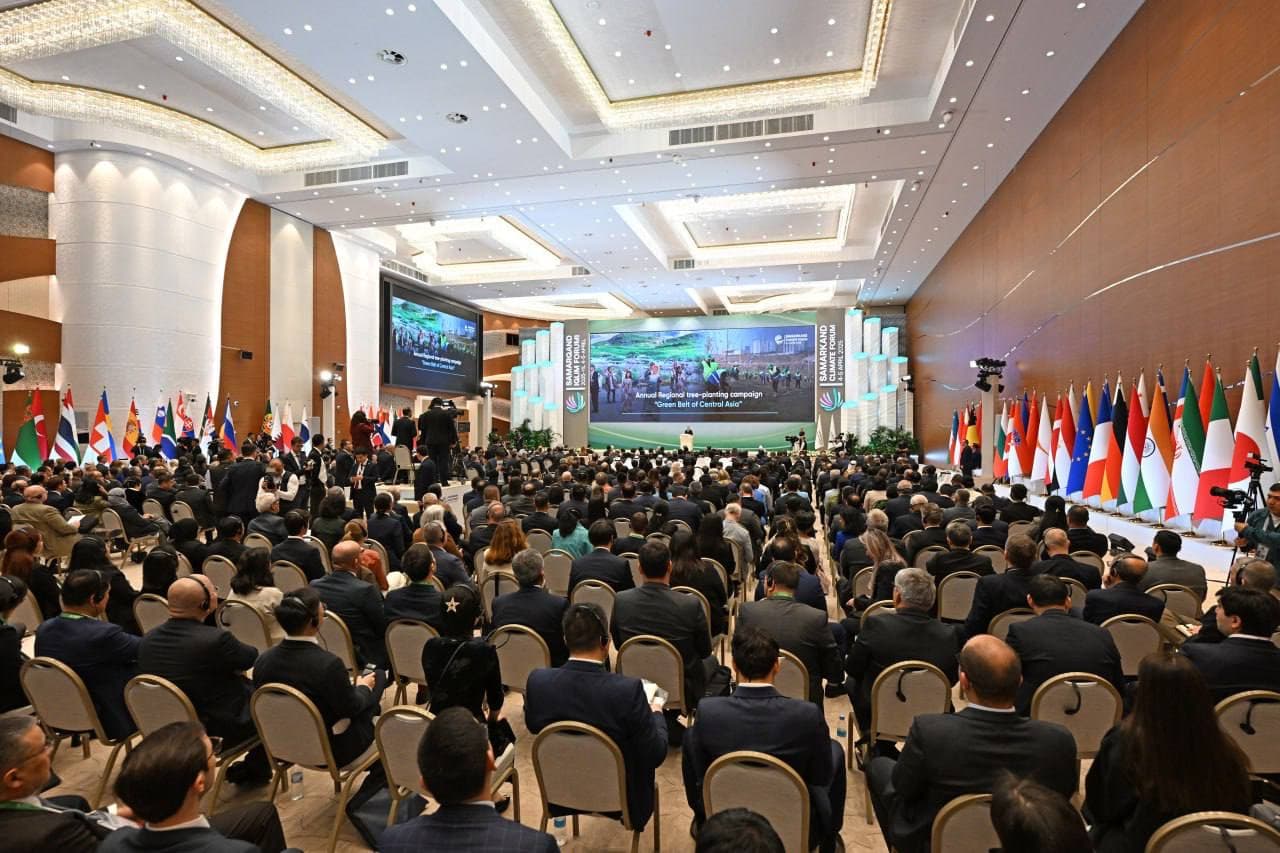The Samarkand Climate Forum has begun its work
2025-04-04 13:00:00 / News
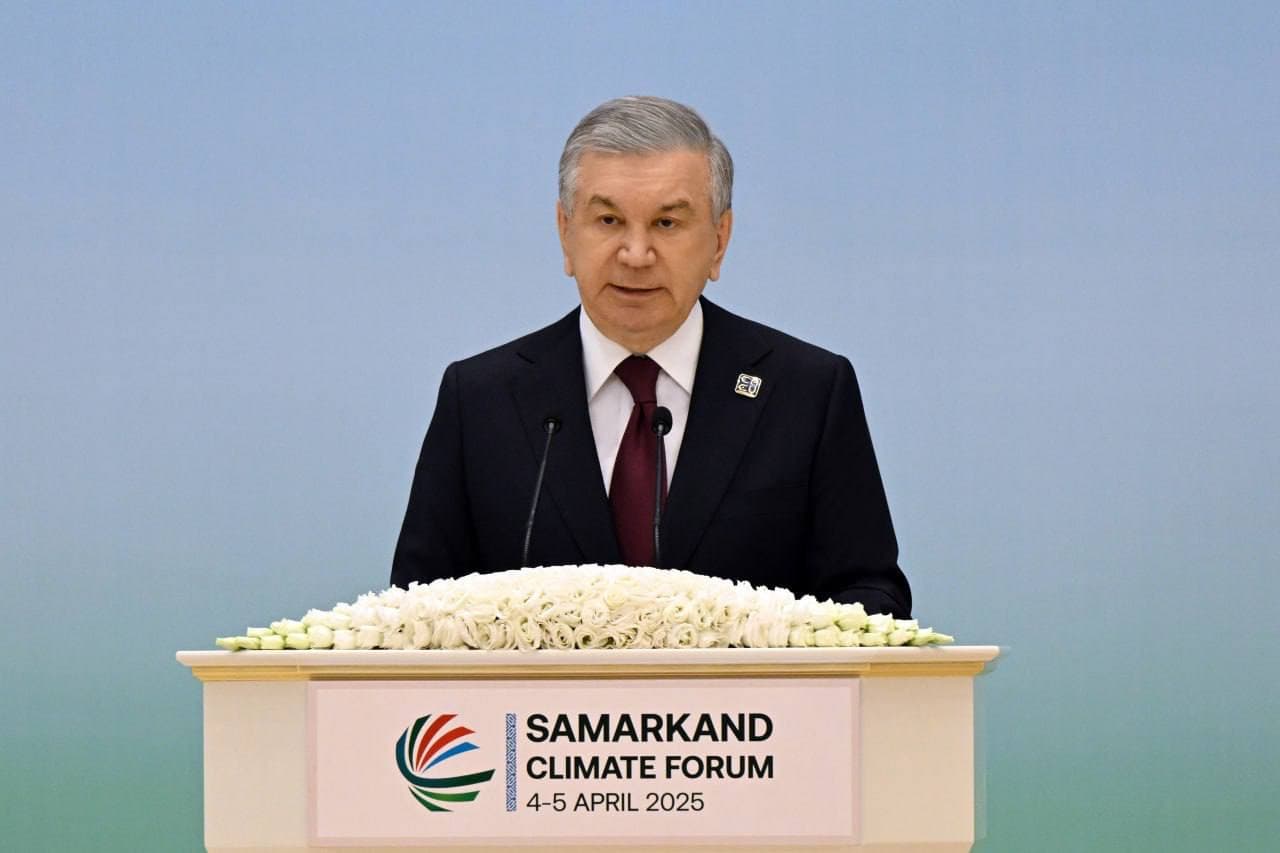
The opening ceremony was attended by the President of the Republic of Uzbekistan Shavkat Mirziyoyev, the President of the Republic of Kazakhstan Kassym-Jomart Tokayev, the President of the Kyrgyz Republic Sadyr Japarov, the President of the Republic of Tajikistan Emomali Rahmon, the President of Turkmenistan Serdar Berdimuhamedov, UN Secretary-General António Guterres (via video message), the President of the European Bank for Reconstruction and Development Odile Renaud-Basso, the President of the European Commission Ursula von der Leyen, the President of the European Council António Costa, the United Nations Under-Secretary-General and Executive Director of UN-Habitat Anaclaudia Rossbach, the UN Under Secretary-General and Executive Secretary of the United Nations Convention to Combat Desertification (UNCCD) Ibrahim Thiaw, and the Under Secretary-General and Executive Secretary of the United Nations Economic Commission for Europe (UNECE) Tatiana Molcean.
In his speech, Shavkat Mirziyoyev proposed a number of key initiatives. The President of Uzbekistan suggested launching a regional initiative called "The Green Belt of Central Asia," with an annual joint tree planting on the eve of Navruz as a symbol of unity in the fight against climate change. He also initiated the idea of creating a Secretariat for the "Water – Energy – Climate Change" initiative in Tashkent to attract finance, technology, and knowledge to address the region’s climate challenges. In the energy sector, a goal was set to increase the share of renewable energy sources to 54% over the next five years, which will reduce greenhouse gas emissions by 16 million tons. Moreover, Uzbekistan aims to fulfill its commitments under the Paris Agreement ahead of schedule, cutting emissions by 35%. The President also proposed enhancing scientific cooperation under the "Horizon Europe" program to improve the resilience of the forestry and agricultural sectors and ensure food security.
In his video message to the forum participants, António Guterres expressed gratitude to the President of Uzbekistan for hosting the forum at such a high level and declaring 2025 as the "Year of Environmental Protection and Green Economy." The UN Secretary-General noted that Central Asia is already suffering from the consequences of the climate crisis—rising temperatures, droughts, glacial retreat, and sandstorms. A. Guterres emphasized the need for urgent actions to avoid further economic destruction, threats to life, and food security. He also called for regional cooperation with the support of global efforts and reminded of the importance of new climate plans (NDCs), which must limit warming to 1.5°C and cover the entire economy.
"Leadership on this issue must come from the G20. We need to be sure that the new goal for financing climate change mitigation, amounting to $1.3 trillion, will be achieved. We need developed countries to fulfill their commitment to provide at least $40 billion annually for climate adaptation starting this year. And we must strengthen support for loss and damage to help the most vulnerable countries and people," the Secretary-General said.
The forum has become an important platform for international dialogue and includes a high-level session on "Climate Change in Focus: Shaping the Future through Collective Action," as well as specialized sessions on green economy, water resource management, transition to clean energy, sustainable urban development, and youth engagement in the climate agenda.
It is attended by over 1,000 delegates from around the world, including official delegations from foreign countries and the European Union, more than 400 representatives from UN organizations, international organizations, research institutes, leading companies, NGOs, and the media.
Special attention at the forum is being given to the issue of the Aral Sea, one of the region's largest environmental crises.
The drying up of the Aral has led to serious climate changes, including increased frequency of dust storms, loss of biodiversity, and deterioration of public health. The restoration of the Aral Sea's ecosystem and the search for sustainable solutions for the region require coordinated efforts at the international level.
At the conclusion of the forum, a Regional Concept for "Green" Development will be presented, which will lay the foundation for a common regional vision of Central Asian countries regarding climate change. This document will reflect the best practices of international organizations in addressing the region's environmental challenges.

